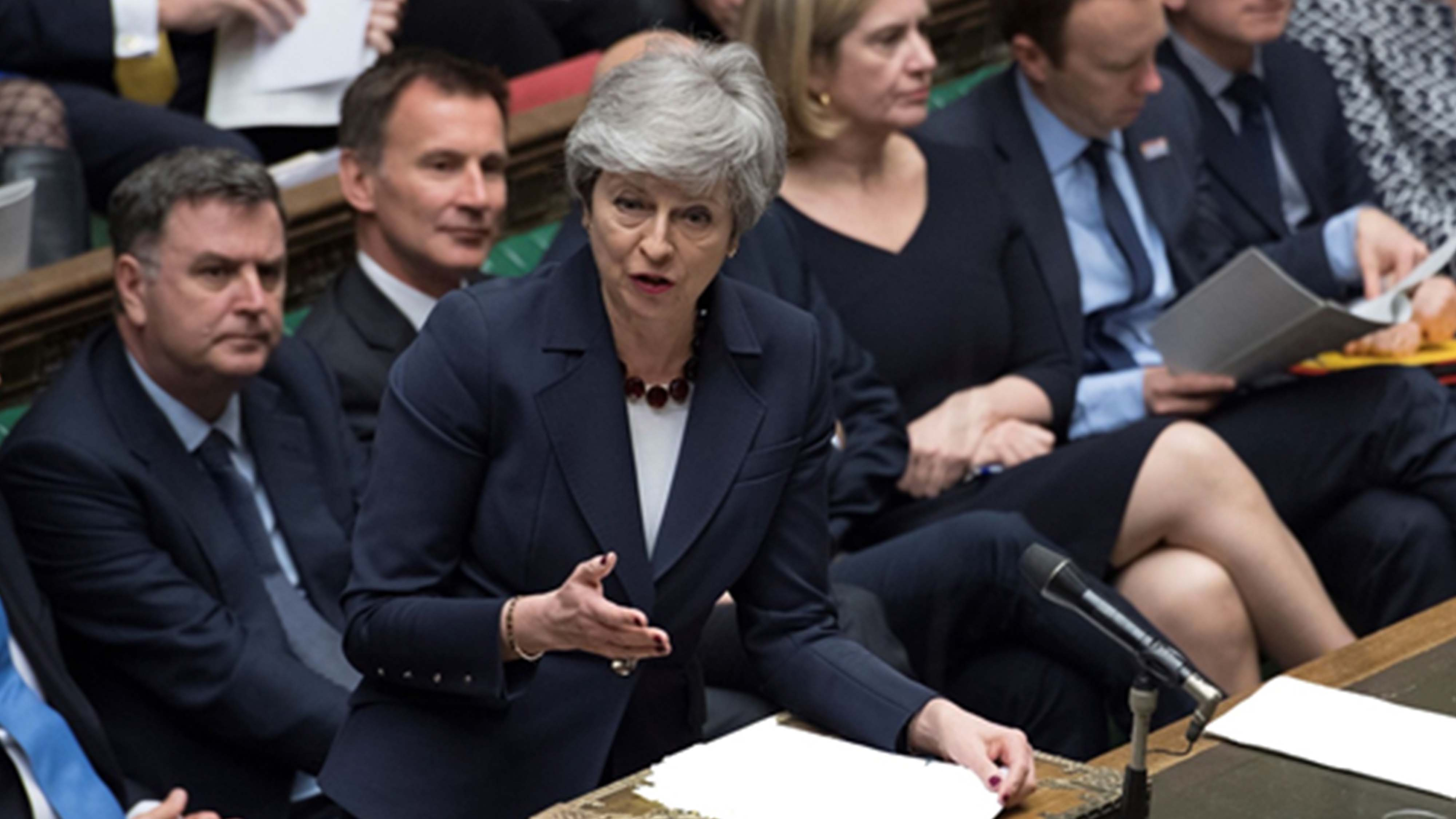
Europe
15:56, 28-Mar-2019
Brexit deadlock: What steps will the UK make next?
Yang Zhao, Wu Yuhan
02:27

The Brexit deadlock shows no sign of abating as Parliament rejects every alternative to Theresa May's deal. What has just happened in the latest MPs' vote?
Members of Parliament failed in their own attempt to break the deadlock, voting down all eight alternative options. Those plans ranged from holding a second referendum, to leaving the EU without a deal on April 12.
None of the proposals won the support of a majority of lawmakers under what they called an "indicative" vote which is not legally-binding, but just designed to see what MPs would and would not support amid the Brexit deadlock.
MPs in the House of Commons, the main decision-making body of the UK Parliament, rejected a no-deal Brexit and a new referendum on any deals to leave the EU on April 12. One proposal that came close to winning majority support would have allowed the UK to leave the EU, but stay inside a customs union with the 27 EU members, in order to ensure tariff-free trade.
There will be several outcomes right now. First, Theresa May might consider holding another round of voting on her deal which some of her big critics within the party are now willing to back it.
But whether she will be allowed to return has been thrown into doubt by the speaker of the House of Commons, who said another vote could only take place if the government has a proposal that is "substantially different" from the previous one.
However, if MPs do get to vote again and this time they back the deal, legislation would be introduced to bring it into effect, and with it Brexit happening on May 22.
But at the same time, a no-deal outcome is still possible if they cannot agree on anything else. Under this situation, a no-deal Brexit would happen on April 12th which is strongly resisted by majority of MPs and has been denied in their recent vote.
Accordingly, if none of these outcomes is favored, Brexit could be further delayed and the UK would have to take part in the European Parliament election in May. At that time, the possibility would be to negotiate a new Brexit deal with the EU or to hold another referendum, which means everything will be back to where things started in 2016.
Or Theresa May could ask MPs to vote for an early general election, under which the current government and Parliament could be changed. And if that happens, it won't be a retreat, but more like pressing the reset button.

SITEMAP
Copyright © 2018 CGTN. Beijing ICP prepared NO.16065310-3
Copyright © 2018 CGTN. Beijing ICP prepared NO.16065310-3